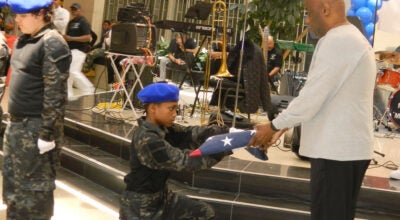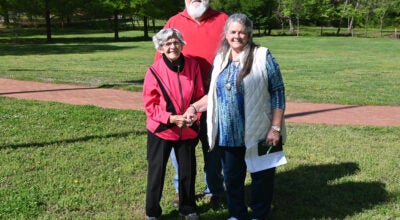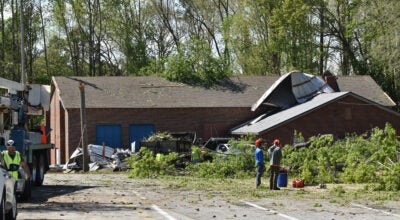Kannapolis votes to accept Hoffner bid for Second Creek land
Published 12:00 am Tuesday, January 15, 2013
KANNAPOLIS — The Kannapolis City Council voted Monday to accept a bid from Chris Hoffner and an investment group for the city’s last remaining parcel of Second Creek land.
The $602,000 bid for the 191-acre plot — the only one received during an upset bidding period in December — was accepted on a six-to-zero vote.
Mayor Bob Misenheimer was absent, recovering at home from heart surgery.
In the days prior to the meeting, city staff had received word that other potential bidders hoped Kannapolis might reopen bidding.
At least one bidder told the city that the Christmas holidays prevented a bid from being placed, despite the fact that the bidding window was extended to accommodate holiday closures.
At the meeting, farmers Chris and Tara Hoffner shared a letter from the CROPP Cooperative, the group that buys milk from Hoffner Organic Farms.
The land in question is used, in part, as pasture for the Hoffners’ cattle.
“(The Hoffners) have demonstrated their commitment … by continuing to take even rented land through the costly three year organic certification process, in spite of losing some of this land when it has been sold to the highest bidder,” Gerry Cohn of CROPP Cooperative said in a letter read by Tara Hoffner.
Council members said the decision was made to help meet one of the city’s original goals of protecting water quality.
The land — leased to members of the Hoffner family for some 30 years — is in the Second Creek watershed, one of the city’s water sources.
“I have always wanted to protect the water rights in that community,” Councilman Darrell Hinnant said after the meeting.
Hinnant asked a number of questions of the Hoffners, and said he ended up convinced that they would be good stewards.
“They’re not going to go in there to cut a bunch of trees … they’re not going to, you know, abuse the property,” Hinnant said.
Mayor Pro Tem Gene McCombs, who presided over the meeting, also talked about the importance of preserving water rights and keeping the land in its present condition.
McCombs said that discussion helped him see their lease of the land would be in the city’s interests.
“Besides, everyone had a chance to bid on it,” McCombs said. “It seemed like the logical thing for us to do, and I’m glad that we did.”
Councilman Tom Kincaid noted the city could have held out for more money, but that the city would benefit from selling to the Hoffners.
“Their business is growing, which is good economic stimulus,” Kincaid said. “It was just the right thing to do.”
And, Kincaid said, e-mails of support were coming in up “until just before the meeting.”
After the meeting, Hoffner told the Post that he had been nervous about the vote, but was glad it had gone well.
Once the deal is officially done, the Hoffners will be able to lease the land for as much as 15 years from investor Wendy Biggs-Ratcliffe, who will also be required to give the Hoffners first refusal should she sell.
The current easements and restrictions — preventing development or non-agricultural uses of the property — remain in force.
In other business, council members heard a presentation from staff on a new code enforcement campaign, aimed at educating citizens and getting rid of violations and public nuisances.
According to a report by Kris Krider, the city’s planning director, in the five months from July to November 2012 Kannapolis averaged over 86 code enforcement cases per month.
Those included junked vehicles, zoning violations and “public nuisance” offenses, such as unmowed grass and trash.
Part of the problem: Kannapolis has had only one code enforcement officer, and a limited budget.
The new effort will be aimed at helping people understand standards, according to City Manager Mike Legg, helping bring about voluntary compliance.
Hinnant called the effort “a huge leap forward.”
“In the past, we have always been reactive in our code enforcement process,” Hinnant said.
Among other issues, Hinnant brought up the problem of small businesses — car repair shops, for example — being run in residential neighborhoods.
After the meeting, Hinnant said he realized that many people need extra work, but that zoning laws must be enforced.
“People need to respect their neighbors,” Hinnant said.
McCombs said that solving code enforcement problems in the city would help improve the entire city.
“We’re going to have to make a concerted effort,” McCombs said.
“I know sometimes there’s an idea that ‘this is my property and I’ll do what I want to,’ but that’s not productive,” McCombs said.
Contact Hugh Fisher via the editor’s desk at 704-797-4244.




